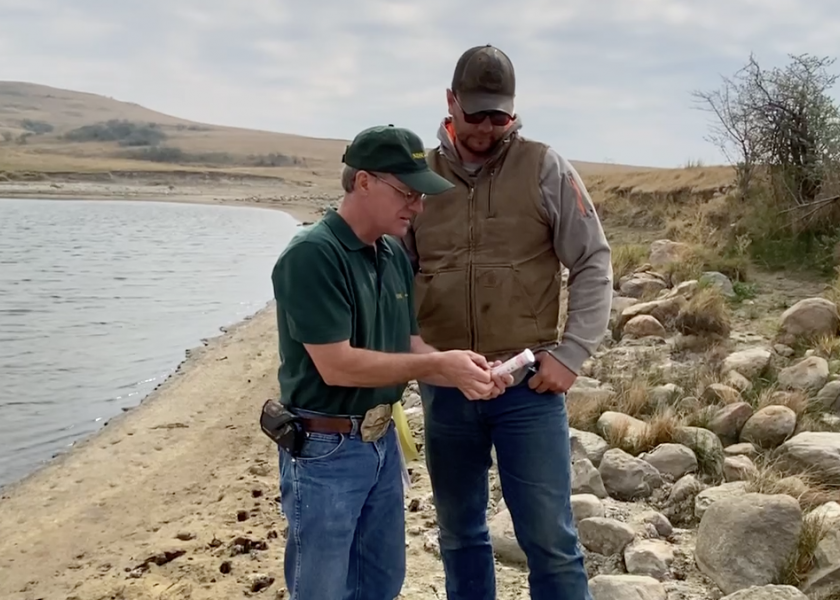Livestock Water Quality a Challenge for Drought Stricken Ranchers

Adequate, good-quality water has been a challenge for ranchers in North Dakota this year, due to wide-spread drought. Many ranchers in the region still depend on surface water sources, such as dugouts and stock dams to provide water to grazing livestock. These sources naturally contain salts, which are dissolved minerals or solids.
Elevated concentrations of total dissolved solids (TDS) and sulfates can be toxic to livestock, resulting in decreased performance, abortions, blindness, central nervous system disorders and death. For most classes of grazing livestock, the TDS in the water should be less than 5,000 parts per million (ppm). Sulfate is part of the TDS.
“The recommended concentration should be less than 500 ppm for calves and less than 1,000 ppm for adult cattle,” says Miranda Meehan, North Dakota State University (NDSU) Extension livestock environmental stewardship specialist. “During a drought there is an increased risk of elevated TDS and sulfates in water sources, as concentrations increase as water levels decrease due to evaporation.”
In response to statewide drought conditions, NDSU Extension agents worked with ranchers to screen the quality of livestock water sources to reduce losses of livestock due to toxic water conditions.
Extension agents screened the concentration of TDS and sulfates across North Dakota throughout the grazing season. Water samples were screened for TDS and sulfate using an electric conductivity meter and sulfate test strips, respectively. If TDS concentrations were equal to or more than 4,500 ppm or sulfates were greater than 800 at the time of screening, laboratory analysis was recommended.
In 2021, Extension agents screened 1,547 water samples from 37 counties in North Dakota. The screenings identified 151 sources with elevated TDS levels greater than 5,000 ppm. Potentially toxic sulfate levels, greater than 1,200 ppm, were identified at 330 locations.
“Ground water sources, such as wells and springs tended to have better water quality than surface water sources,” Meehan says. “Of the ground water sources screened, one had elevated TDS levels and five had elevated sulfate levels.”
Screenings conducted by NDSU Extension resulted in 138 samples being submitted for laboratory analysis and management changes at 214 locations. Management changes included continued monitoring, excluding or moving livestock, hauling water and developing alternative water sources. These changes impacted the health and performance of over 26,000 head of cattle in the state.
“Water quality screening and analysis of livestock sources allows ranchers to ensure water quality is not impacting livestock performance or health,” Meehan concludes. “It also can aid in making management decisions such as when livestock should be removed from a pasture or when an alternative water source should be used or developed. Installing a water development plan can help ensure that livestock have access to good-quality water throughout the grazing season and increase a ranch’s drought resilience.”







